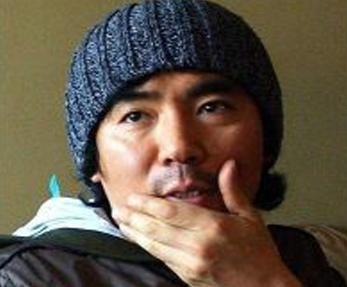The following interview took place at the Korean Cultural Centre UK on Saturday November 9th 2013 prior to the London Korean Film Festival 2013 screening of 'Kim Jee-woon: In Short' - a compendium of four of Kim Jee-woon's short films - and followed by an audience Q&A.
Interview:
Hangul Celluloid: You’re here tonight at the London Korean Film Festival to show a number of your short films. Throughout your career you have made a large number of shorts in between directing major feature-length films while most directors use shorts simply as a stepping stone to making full length films. What makes short films important enough to you that you have repeatedly returned to directing them?
Kim Jee-woon: There are many reasons and each short has a different significance for me. For example, the two shorts ‘Coming Out’ and ‘Memories’ were made after ‘The Quiet Family’ and ‘The Foul King’. Both those features were very humorous while ‘A Tale of Two Sisters’ was dark and serious, and in moving through such a drastic genre and tone change I felt that I needed to experiment to ensure that move was a success. So, I used those short films to do so. Other shorts such as ‘One Perfect Day’ and ‘Present’ were offered to me: ‘One Perfect Day’ was suggested to me by clothing manufacturer Kolon and ‘Present’ was commissioned by fashion magazine. In fact, since I made my debut as a director almost not a year has gone by without me making a movie. Perhaps I truly am a workaholic and I guess the reason I am so prolific is that I find it somewhat boring if I’m not making films, whether they are features or shorts. There is a saying in Korea that sums that feeling up: ‘I don’t want to have meals by myself’.
Hangul Celluloid: You have mentioned one of the short films screening tonight, romantic comedy ‘One Perfect Day’. While you have made feature films covering genres from comedy to thriller to action to horror, you have never directed a full-length rom-com. While did you chose romantic comedy as the genre for ‘One Perfect Day’?
Kim Jee-woon: As you said, I have never made a full-length romantic comedy. However, the genre is nonetheless very dear to my heart and I have had scenes within other genre films that have strong romantic comedy elements. As such, when I got the opportunity to make ‘One Perfect Day’, I thought it would be the perfect chance to create a short film in a genre I had not covered in full. It even called to me, in a way. Will I ever make a romantic comedy feature? I may or I may not… I guess time will tell.
Hangul Celluloid: I’ve spoken to a number of first-time directors who have, as you mentioned, tried to use short films to move to directing feature films. Almost all of them have spoken about the great difficulty they have had in even getting those shorts screened. Do you feel your fame, if you will, has made getting your short films screened easier?
Kim Jee-woon: It is certainly true that for most directors there are great difficulties in getting short films screened in Korea. However, as many of my shorts have been made as part of larger projects and most have come on the back of releases of my feature-length films, I have had no real difficulties by comparison. Perhaps my fame has played a part on its own too, but of course I won’t say it has (Kim Jee-woon laughs).
Hangul Celluloid: Since I interviewed you in 2010 shortly after the release of ‘I Saw the Devil’, you have been to Hollywood and made English language film ‘The Last Stand’. In hindsight, how did you find working in the Hollywood system as opposed to making films within the Korean film industry?
Kim Jee-woon: At first, I thought the language barrier would be the most difficult aspect of my working in Hollywood but it turned out the differences between the two systems overall was the toughest for me to deal with and reconcile. For instance, in Korea the director is the dictator, he is the Emperor, and whatever he decides is reflected on the big screen. However, in Hollywood, the director’s ideas have to be confirmed by many other parties including the producers, the studio and even in some cases the lead actors. Another problem for me was the fact that there were fewer days for the shooting process to take place and the working days themselves were shorter. Not only that, but the role of the assistant director was significantly different: In Korea, the assistant director helps to represent the director’s aesthetic views on the big screen but in the US the assistant director deals with the logistic aspects of production. I guess that means the director ends up feeling the incredible pressure of making a film by himself and even feels lonely, if you understand my meaning, and I personally often felt I had to hurry and had to fight to realise my own aesthetic ideas but halfway through the shooting process I finally began to understand what needed to be done to successfully work in the Hollywood system. Maybe that realisation came a little too late for me – coming so late in the shooting process – but I nonetheless felt that I ultimately succeeded.
I would sincerely like to thank the London Korean Film Festival and the Korean Cultural Centre UK for allowing me to interview director Kim Jee-woon.
Please Note: Apologies for the brevity of the above interview but with so many writers and critics wanting to talk to Kim Jee-woon, 10 minute interview slots were assigned to each of us and, with Kim Jee-woon giving such in-depth responses, the time flew by at breakneck pace. I hope you've enjoyed reading the interview, in spite of its shortness.


